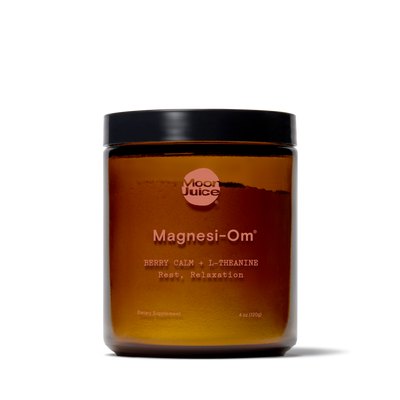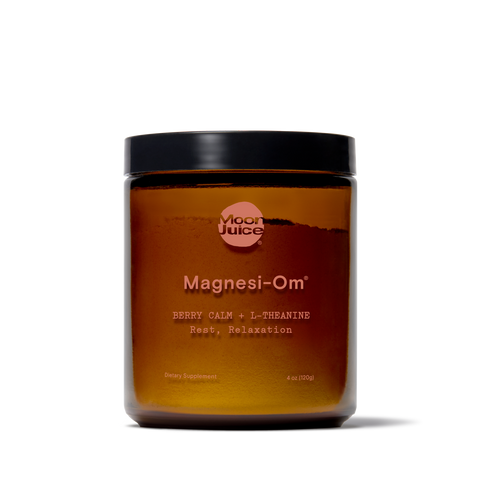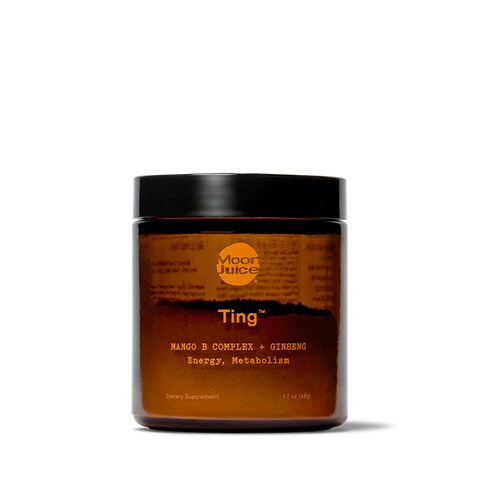When you think of electrolytes, an image of sweaty athletes drinking sports drinks probably comes to mind. But all of us need electrolytes to function. They provide the body with a boost of hydration and help support essential functions like cognition and metabolism. But what drinks have electrolytes?
Read on to discover some of the best electrolyte drinks.
What Drinks Have Electrolytes?
When dissolved in water, electrolytes like Sodium, Potassium, Chloride, Magnesium, Calcium, and Phosphate, produce electrical charges. These electrically charged minerals maintain bodily functions and osmotic balance. Think of it this way: your body is electric and requires power to keep going. Your brain, too, needs electricity to keep neurons firing and stay lit.
Electrolytes act like power cords to help direct energy to where it needs to go.
If that all sounds vital to you, you’d be correct. Without electrolytes, the body can’t regulate fluid balance in and out of cells, nerve and muscle function, waste transport, cognitive and cardiac function, and pH balance.
Several drinks can help you replenish your electrolyte stores and keep you from becoming dehydrated. Consider trying one of these drinks that have electrolytes.
1. Sports drinks
If you’re an elite athlete or regularly putting in high-intensity workout efforts, you’re likely losing a significant amount of your body’s Sodium and water stores through sweat.
Water and electrolyte loss during a workout can make you thirsty, and it can slow you down significantly. If you don’t replenish water, Salt (and other minerals) lost through sweat, it can end up affecting your performance. For this reason, during or after your workout is one of the best times to drink electrolytes.
Water alone isn’t enough to restore your blood electrolyte levels, especially during and after hard efforts in hot conditions. Sports drinks are a kind of electrolyte-enhanced drink designed with athletes in mind. They’re formulated to replenish electrolytes and water that you lose during physical activity.
By maintaining hydration and supplying your body with nutrients like carbs and electrolytes, sports drinks may improve athletic performance. And because sports drinks prevent nutrient and electrolyte depletion, they may even increase recovery rate post-exercise.
Keep in mind, though, that many sports drinks have added food dyes, which have been linked to health concerns. They also often contain a lot of added carbs since they’re designed for those doing strenuous physical activity, so they might not be a fit for day-to-day hydration.
2. Electrolyte-enhanced water
Proper hydration is essential for essential electrolyte balance, but water alone doesn’t contain the electrolytes necessary for your body to function.
Electrolyte-enhanced water hydrates while also supplying your body with the electrolytes it needs to stay balanced on a daily basis.
Keep in mind that electrolyte concentration can vary from brand to brand, so it’s important to read labels. For example, some drinks might include added sugar.
3. Daily electrolyte supplement
A daily electrolyte supplement like Mini Dew™ is an easy way to get your electrolytes in. The formula is 2 in 1: a multimineral + electrolyte for proper hydration and brain function.* This essential electrolyte drink powder with trace minerals tastes like organic watermelon, a pinch of minerals, and a dash of pink salt. To use it, add 1 teaspoon to 12 to 16oz water daily or anytime you’re sweating a bit extra — hot yoga, saunas, traveling — or feeling blah.
What’s the point of a daily electrolyte supplement? While the food you eat can provide some electrolytes, modern agricultural practices like monocropping, pesticides, and synthetic fertilizers have stripped the soil of nutrients like essential minerals. That means food crops absorb fewer nutrients overall, including minerals.
4. Certain fruit juices
Several fruit juices contain small amounts of electrolytes. And while fruit juice probably shouldn’t be your first choice to restore your electrolyte balance after a hard workout, it can be a refreshing, tasty way to rehydrate from time to time.
Fruit juices that are a good source of electrolytes include:
- Watermelon juice (1 cup of pure watermelon juice contains about 5% of your Recommended Daily Value (RDV) of Potassium and Magnesium and trace amounts of other minerals
- Orange juice (1 cup contains 496 mg of Potassium, 27.4 mg of Magnesium, and 42.2 mg of Phosphorous)
- Tart cherry juice (1 cup contains 29.6 milligrams (mg) of Magnesium, 45.7 mg of Phosphorous, and 433 mg of Potassium)
While fruit juice might be higher in sugar than other homemade electrolyte drink sources, it tends to be lower in Sodium and contain additional nutrients like antioxidants.
5. Coconut water
Many people swear by coconut water for hydration on hot sunny days. What makes it so great?
Aside from its mild flavor, coconut water, which is harvested from young coconuts, contains a host of minerals and nutrients, including:
- Calcium
- Phosphorous
- Potassium
- Magnesium
A single cup of coconut water also contains about 15 grams of carbohydrates, which can help fuel physical efforts. One small study also found that coconut water is easier to take in large quantities and produces less nausea and stomach upset than plain water or some sports drinks.
An older study from 2005 also suggests that drinking coconut water may have a positive impact on blood pressure, possibly because it contains high levels of Potassium, which is important for regulating blood pressure.
Sign Up, Nerd Out
Get wellness tips, education, and recipes
delivered straight to your inbox.
Get wellness tips, education,
and recipes delivered
straight to your inbox.
6. Electrolyte-infused teas
If cold beverages aren’t your jam, consider electrolyte-infused tea as your rehydration drink of choice.
- Sixteen fluid ounces of green tea contains about 33 mg of Sodium, about 2% of your RDV of Potassium, and 10% RDV of Phosphorous.
- Brewed hibiscus tea also contains Phosphorous, Potassium, Sodium, and Manganese.
- Lemon tea is also high in Potassium.
It’s important to note that electrolyte-infused teas are unlikely to contain the same amount of electrolytes as an electrolyte supplement or traditional sports drink, but they’re still a satisfying option to fill in hydration gaps.
Sources
- Alleyne T, et al. (2005). The control of hypertension by use of coconut water and mauby: Two tropical food drinks. https://pubmed.ncbi.nlm.nih.gov/15892382/
- Crowe-White K, et al. (2017). Metabolic impact of 100% fruit juice consumption on antioxidant/oxidant status and lipid profiles of adults: An evidence-based review. https://pubmed.ncbi.nlm.nih.gov/26596639/
- Kobylewski H, et al. (2012). Toxicology of food dyes. https://pubmed.ncbi.nlm.nih.gov/23026007/
- Orrù S, et al. (2018). Role of functional beverages on sport performance and recovery. https://www.ncbi.nlm.nih.gov/pmc/articles/PMC6213308/
- Rowlands DS. (2022). The hydrating effects of hypertonic, isotonic and hypotonic sports drinks and waters on central hydration during continuous exercise: A systematic meta-analysis and perspective. https://pubmed.ncbi.nlm.nih.gov/34716905/
- Saat M, et al. (2002). Rehydration after exercise with fresh young coconut water, carbohydrate-electrolyte beverage and plain water. https://pubmed.ncbi.nlm.nih.gov/12056182/
- Sawka MN, et al. (2007). American College of Sports Medicine position stand. Exercise and fluid replacement. https://pubmed.ncbi.nlm.nih.gov/17277604/
- Staruschenko A. (2018). Beneficial effects of high potassium. https://www.ahajournals.org/doi/full/10.1161/hypertensionaha.118.10267













